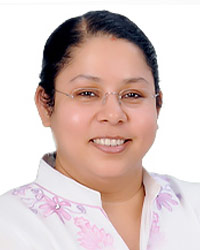On 16 January 2024, a hearing in the case of Rupa Gujral and Ors v Daryaganj Hospitality Private Limited and Ors saw the opening salvos in what could either be a lengthy campaign over culinary intellectual property or a mere skirmish in a marketing dispute.
Delhi High Court was faced with opposing versions of the origin of two widely enjoyed dishes, Butter Chicken Masala and Dal Makhani. Moti Mahal is a well-known restaurant business, hosting many distinguished national and international guests. They brought the case against Daryaganj, claiming they were the original inventors. The claims to fame and the disputed status were prompted by Daryaganj’s use of the tagline “By The Inventors Of Butter Chicken & Dal Makhani”. Moti Mahal, which used the branding “India’s Famous Restaurant Since 1920”, alleged that Daryaganj’s wording was misleading and deceptive.

Partner
LexOrbis
The hearing was for directions but the court succinctly set out the rival claims. The plaintiffs claimed that their predecessor, Kundal Lal Gujral, was the inventor of the dishes. The defendants countered that their predecessor, Kundan Lal Jaggi, jointly with Kundan Lal Gujral established the original Moti Mahal in Peshawar before partition. The defendant argued that the plaintiffs had no exclusive right to claim they created the dishes.
The plaintiffs submitted that their predecessor invented tandoori chicken and, on realising that the large amounts of leftover meat could not be refrigerated, created a gravy or sauce made out of tomatoes to store the cooked meat and prevent it from drying out. The mixture had a buttery flavour and texture, causing the words “Butter” and “Makhani” to be used in the names. The plaintiffs claimed that Dal Makhani was also invented by Kundan Lal Gujral by cooking the buttery sauce with black pulses, a dish conceptually the same as Butter Chicken Masala.
The plaintiffs contended they owned the mark Moti Mahal and all marks used in their restaurants set up nationally and internationally since 1920. The plaintiffs alleged that the defendants were attempting to create a false sense of connection between themselves and the plaintiffs, as evidenced by the use of the name Daryaganj. This refers to the locality in which the plaintiffs’ restaurant was set up. The plaintiffs also drew particular attention to certain allegedly deceptive content displayed on the defendants’ website. This consisted of a photograph of Kundan Lal Gujral, which had been misrepresented as Kundan Lal Jaggi and an altered photograph of the plaintiffs’ original restaurant in Peshawar.

Associate
LexOrbis
As on the previous hearing date, the defendants said they had received notice only a week before the hearing date and had not filed a written statement. However, they contended that the case was misconceived and disclosed no credible cause of action. The defendants claimed the parties jointly established the restaurant, and there could be no exclusive right over the image used on their website. This was particularly so when the defendants had cropped the name Moti Mahal appearing in the image to prevent confusion. The court acknowledged that the defendants had held out an olive branch by agreeing to take down the photo from their website within a week but without admitting any of the claims made by the plaintiffs alleging misrepresentation and deception.
In the trial, the court will no doubt have to assess voluminous circumstantial evidence. The case will determine the origin of Butter Chicken Masala and Dal Makhani so that the tagline can be attached to the name of the appropriate restaurant. It will be important to differentiate between the recipe, which forms part of the trade secret, and the banner under which the dishes will be sold for public consumption, which is part of the trademark. The court will have to determine the origin of the dishes by making findings of fact as to the establishment of Moti Mahal and Daryaganj and the relationship between their predecessors.
The court will have to decide whether to grant the plaintiffs sole rights to the use of the branding or to give the parties joint ownership. In the latter verdict, each could use the tagline. Both sides clearly see considerable commercial value in winning. The issues may be better delineated when the case next comes before the registrar on 18 March and the court on 29 May.
Manisha Singh is a partner and Tushitta Murali is an associate at LexOrbis.

709/710 Tolstoy House
15-17 Tolstoy Marg
New Delhi – 110 001
India
www.lexorbis.com
Mumbai | Bengaluru
Contact details:
T: +91 11 2371 6565
E: mail@lexorbis.com






























